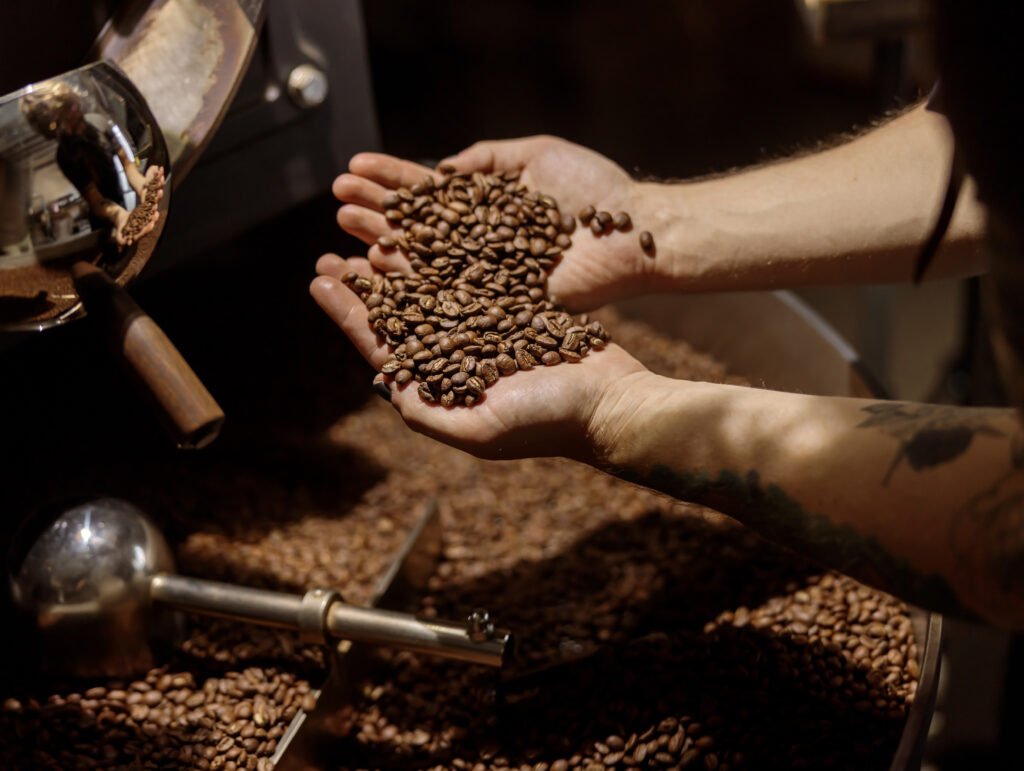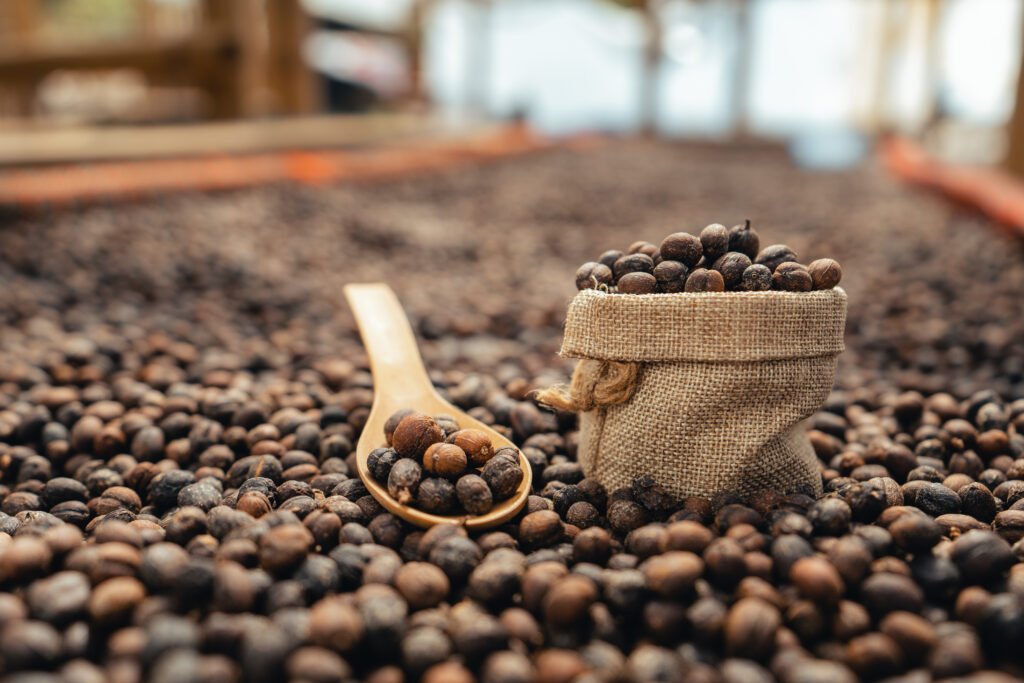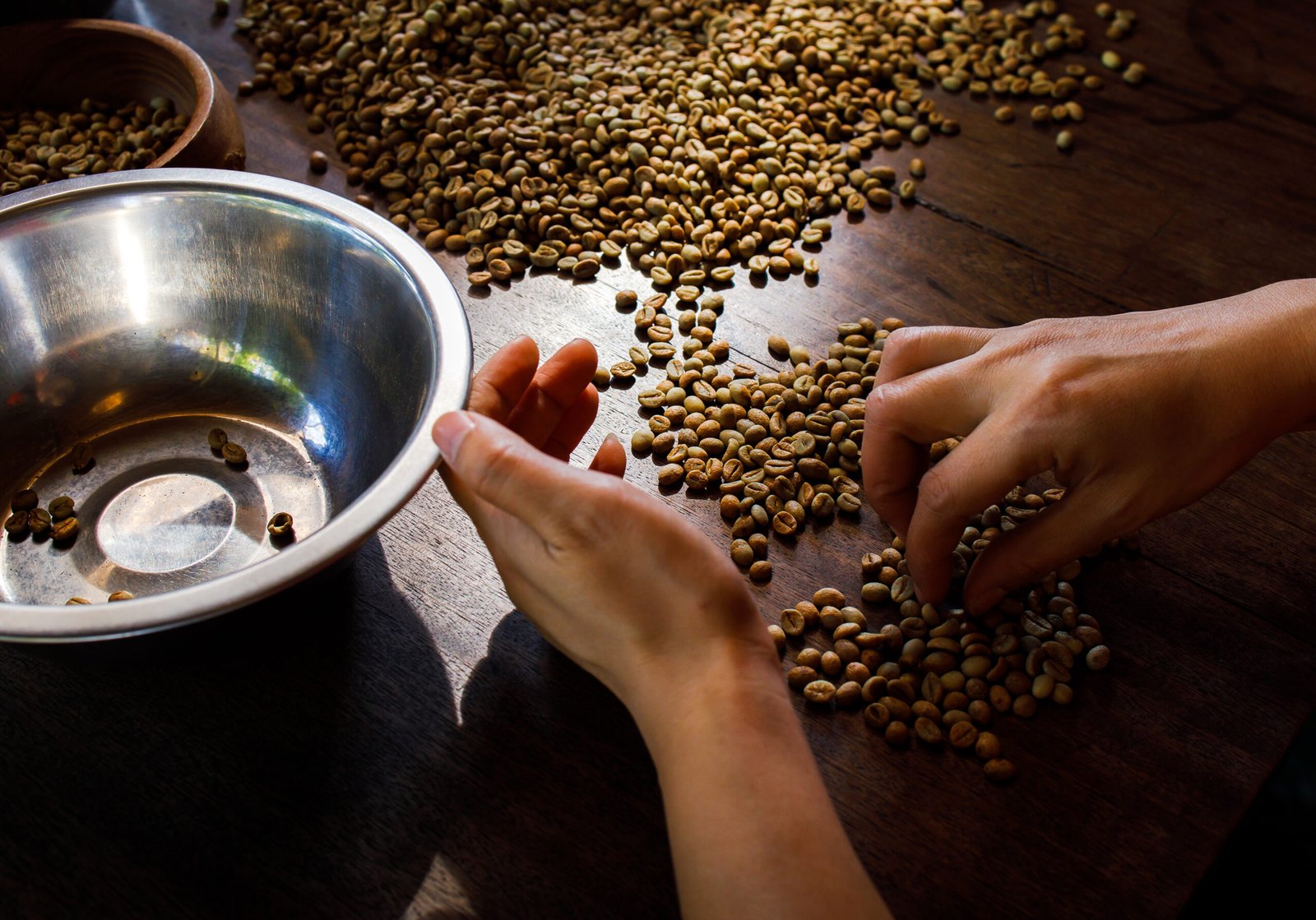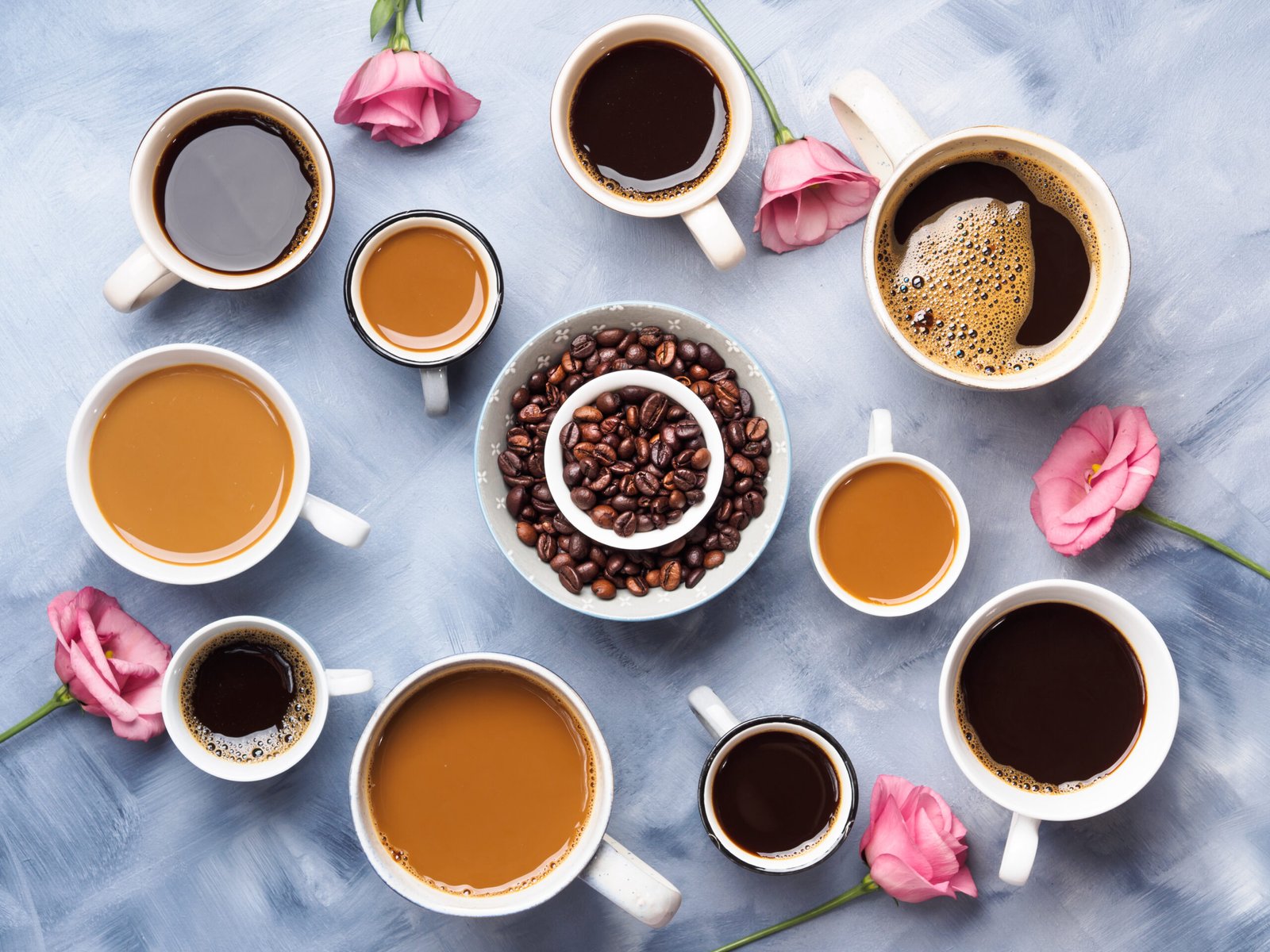
Emerging Approaches Redefining Craft-Focused Customer Experiences
Craft-focused small businesses have always relied on care, precision, and sourcing to stand out. What’s changing now is how those values are shown, not just

When people say beans, the first thought might be the ones in a pot of chili con carne, or even the adorable paw pads we fondly call toe beans. But one specific kind of bean, arguably the MVP of all beans and perhaps society itself, is the coffee bean. This guide to finding the best coffee beans near me explores how these tiny seeds have shaped civilizations, fueled mornings, and inspired cultures worldwide.
Long before coffee became a global industry, wild coffee plants likely kept curious animals and birds awake, discovering its energizing powers before humans learned to brew coffee.
Today, coffee is not just a drink—it’s an experience. The flavor of coffee depends on everything from the coffee plant species to how the beans are roasted and brewed. Whether you enjoy a light roast, a dark roasted espresso, or a smooth medium roast coffee, every cup begins with a carefully grown and processed coffee bean.
While most people go about their day sipping whatever their local café serves or tearing open an instant sachet, there’s much more to the world of coffee than meets the eye. From different coffee growing regions to roasting and brewing techniques, every element influences the flavor of the bean. To help you explore the best coffee beans near me, let’s start with the two main types that dominate global coffee production: Arabica and Robusta.

The story of Arabica coffee begins in Ethiopia, often considered the birthplace of coffee. This species, Coffea arabica, is the oldest and most cultivated type of coffee bean in the world. Known for their oval shape and distinct center crease, Arabica beans are delicate, fragrant, and naturally lower in caffeine than their Robusta coffee counterparts.
Arabica coffee plants thrive at higher altitudes where temperatures are cooler and soil is rich. This slower growth process allows the flavor of the coffee to develop complexity. Depending on the region, altitude, and processing method, Arabica beans can display a wide range of notes—from floral and fruity to nutty or chocolatey undertones.
There are multiple varieties of Arabica coffee beans, including Typica, Bourbon, and modern hybrids. Typica is the foundation of many single-origin coffee offerings, valued for its clean cup and bright acidity. Bourbon tends to produce a sweeter and fuller-bodied roasted coffee bean. Breeders have also developed F1 hybrids that combine the best genetic traits of different coffee species, improving disease resistance while preserving taste.
When roasted, Arabica coffee beans reveal delicate sweetness balanced by slight acidity. Light roasts highlight fruity and floral notes, while dark roasted versions bring out rich caramel and chocolate tones. Skilled roasters ensure that the best coffee beans near me are roasted at precise temperatures, unlocking their full potential.
To learn more about how we celebrate these beans at Equipoise, visit our About Us page and discover the philosophy behind our balanced approach to roasting.
If Arabica is the artist, Robusta is the athlete. Originating in Central and West Africa, Robusta coffee beans (Coffea canephora) are known for their resilience and bold flavor. They thrive in lower altitudes and hotter climates, where Arabica coffee would struggle. The Robusta coffee plant resists pests, disease, and harsh weather better than most, making it ideal for mass cultivation and the commercial coffee market.
Robusta beans contain nearly twice the caffeine of Arabica, which contributes to their stronger, more bitter flavor. This higher caffeine content also acts as a natural pesticide, further protecting the plant. When brewed, Robusta coffee offers a heavier body and an earthy, woody taste, often described as more intense and slightly nutty or smoky.
Because of its durability and affordability, Robusta dominates large-scale coffee production, especially in instant coffee and commercial coffee blends. Yet, high-quality Robusta coffee beans can produce excellent espresso shots, especially when roasted by experts. Their thicker crema and deep body pair beautifully with milk-based drinks like cappuccinos and lattes.

The flavor of your coffee depends heavily on where it is grown. Each coffee growing region contributes distinct characteristics to the bean, influenced by altitude, soil composition, and climate. Understanding these regions helps you recognize what makes the best coffee beans near me unique.
Latin America—especially Colombia, Costa Rica, and Mexico—produces Arabica coffee beans celebrated for balanced acidity and bright fruit notes. Colombian Supremo, for example, offers mild sweetness and a clean profile, making it a favorite among coffee lovers. Ethiopian Yirgacheffe, one of the most renowned single-origin coffees, brings floral and citrus tones that reflect its high-altitude origin.
African coffees, such as those from Kenya and Tanzania, often feature lively acidity and berry-like brightness. Meanwhile, Asian coffees, like those from Indonesia or Vietnam, lean toward earthy, spicy, and full-bodied flavors. Vietnam, in particular, stands as one of the largest producers of Robusta beans globally, powering much of the world’s instant and espresso coffee supply.
You can read more about global coffee origins and stories on our Stories page.
Before you enjoy your morning cup, your coffee beans undergo a remarkable transformation. After harvesting, coffee cherries are pulped to extract the seeds—what we call green coffee beans. These unroasted beans are dried, stored, and shipped to roasters worldwide.
Coffee roasting is where transformation happens. As the beans roast, caramelization and Maillard reactions create flavor, aroma, and texture. A light roast keeps the bean’s fruity notes, a medium roast balances sweetness and acidity, and a dark roast delivers bold, smoky flavors with less acidity. Roasters perfect these stages to create the best coffee beans near me, tailored to each origin’s profile.
During roasting, oils surface on the bean, shaping texture and mouthfeel. Skilled roasters monitor color, temperature, and crack sounds to ensure every batch meets exacting standards. Whether you enjoy a light or dark roast, the process defines your final cup’s personality.
Once your roasted beans are ready, brewing becomes the next chapter in the experience. Each brewing method—pour-over, drip, espresso, or French press—extracts different notes. Water temperature, grind size, and brew time all shape the final taste.
For drip coffee, medium-ground roasted beans work best. Espresso calls for a fine grind, while the French press relies on coarse grounds for smooth extraction. Experimenting with methods helps you appreciate how flavor changes with technique.
Always start with the best coffee beans near me, grind them fresh, and use clean, filtered water. If you want to try brewing at home, explore our Store to find whole bean options perfect for your preferred brewing style.
Even the highest-quality beans can lose their charm if not stored correctly. Keep your coffee in an airtight container, away from heat, moisture, and sunlight. Avoid the refrigerator, as condensation affects texture and taste.
Some enthusiasts freeze beans in small batches to preserve freshness. If you do, allow the beans to reach room temperature before grinding for the best consistency and flavor.
With countless varieties available, how do you find the right one? Start with your taste preferences. If you love mild, sweet coffee with balanced acidity, Arabica coffee beans are ideal. If you prefer bold, strong, and earthy tones, Robusta will deliver that punch.
Try experimenting with single-origin beans for pure flavor or blends that combine body and aroma. The best coffee beans near me often strike a balance between variety and freshness, offering unique local character while showcasing global flavor profiles.
Behind every great cup is a network of farmers, pickers, and roasters committed to quality. Each coffee tree takes years to mature, and each cherry is carefully harvested and processed before reaching your cup. Ethical sourcing supports communities and sustainable farming practices worldwide.
When you buy the best coffee beans near me, you also support fair trade, quality, and craftsmanship—values that make every sip more meaningful.

Ready to taste the world through your cup? Begin with Arabica beans from origins like Mexican La Laja Honey, Ethiopian Yirgacheffe, or Colombian Supremo, all from Equipoise. Each offers a different story of soil, sun, and care.
The best coffee beans near me remind us that quality is built through patience, precision, and people. Each sip connects you to the farmers who grew it and the roasters who perfected it.
If you’d like help finding your ideal roast or have questions about our bean selections, contact us, and our team will guide you toward a flavor profile that fits your style.
You can start by checking local roasters, cafés, or trusted online stores that specialize in high quality coffee. Look for freshly roasted whole bean coffee with clear details about origin, roast level, and flavor. Reading a short guide to coffee beans helps you understand whether a light roast, medium roast coffee, or dark roasted bean will best suit your brew. Many coffee drinkers enjoy visiting nearby roasteries to taste different coffee varieties before choosing a favorite.
Proper storage of coffee beans is essential for flavor. Keep your roasted beans in an airtight container and store coffee in a cool, dry place away from sunlight. Avoid refrigerators because moisture affects the coffee bean aroma and taste. Some people freeze coffee beans in small batches, but always let the beans reach room temperature before grinding to protect the flavor of the bean. Storing coffee beans correctly maintains freshness so every cup of coffee tastes its best.
Both types of coffee beans offer something unique. Arabica coffee beans are known for smooth flavor, bright acidity, and complex aroma, making them a popular choice for single origin coffee and specialty brew coffee. Robusta coffee beans contain more caffeine, which gives a stronger, bolder taste and thicker crema. Many coffee blends mix both bean types to balance flavor and body. Choosing the right coffee depends on whether you prefer mild Arabica coffee or the full, intense character of Robusta.
High quality coffee beans often come from the best coffee growing regions where altitude, soil, and climate support slow, rich development of the coffee plant. Quality of the bean is influenced by careful harvesting, processing, and coffee roasting methods. Freshness, ethical sourcing, and proper storage also affect flavor. A good roasted coffee bean should taste clean and enjoyable without bitterness. Reading an ultimate guide to coffee beans helps you learn how coffee beans are roasted and what to look for in premium varieties of coffee.
Yes, the roast level plays a big role in the flavor of your cup of coffee. Light roast coffee beans keep more of the original flavor of the bean and often show fruity or floral notes. Medium roast coffee offers balanced sweetness, acidity, and aroma. Dark roast coffee beans are bold with deeper, smoky flavors. Trying different types of coffee roasts helps you discover which roast coffees best match your taste.
Single origin coffee comes from one farm, region, or country. This allows you to taste the natural flavor of the coffee bean based on the coffee growing region. Coffee blends combine beans from different places to create a balanced flavor profile. Some blends focus on smooth acidity while others highlight body or sweetness. Choosing between single origin coffee and a blend depends on whether you want a pure expression of one coffee bean variety or a mix crafted for a specific flavor.
Whole bean coffee stays fresher longer because the bean protects its natural oils and aroma until you grind it. Grinding coffee right before brewing gives the best flavor in your cup. Pre ground coffee is convenient, but loses aroma quickly. If you want high quality coffee, choose whole bean and grind your coffee just before brewing. Use the right grind size for your brew coffee method to improve taste.
Many of the world’s coffee production takes place in Latin America, Africa, and Asia. Ethiopia is considered the birthplace of coffee and produces beans with bright acidity and floral notes. Colombia is known for smooth and balanced coffee. Brazil produces large volumes of commercial coffee that is often used in blends. Vietnam is one of the largest Robusta producers in the world. Learning about coffee growing regions helps you explore different coffee bean varieties and find the right coffee beans for your taste.

Craft-focused small businesses have always relied on care, precision, and sourcing to stand out. What’s changing now is how those values are shown, not just

How can brands create a more balanced and memorable customer experience by blending artisanal product quality with thoughtful everyday rituals that keep people coming back?

Independent coffee shops have always been about more than caffeine—they’re hubs of creativity, connection, and care. As café culture continues to evolve, new trends are

Introduction Independent cafes win when they feel like the neighborhood’s living room and operate with the discipline of a great kitchen. Below is a quick

Discover how top specialty coffee brands create lasting loyalty through storytelling, sourcing, and community connection. Real tips from 6 industry experts.

Discover the ultimate showdown between two beloved coffee brewing methods: the French press and Chemex. Explore how each technique caters to distinct palates, with the French press delivering bold flavors and the Chemex presenting a bright, clean taste.

Unlock the secrets to brewing the perfect cup of coffee with our comprehensive guide on using a coffee scale. Discover how precise measurements enhance flavor and consistency while eliminating bitterness.

Discover how water temperature plays a vital role in brewing the perfect cup of coffee. This article delves into the ideal temperature range of 195°F to 205°F for optimal flavor extraction, enhancing the enjoyment of high-quality beans.

Discover the world of curated specialty coffee bundles, perfect for enthusiasts seeking quality and craftsmanship. This article explores the benefits of ethically sourced, small-batch beans from brands like Equipoise Coffee, offering diverse flavor profiles that elevate your brewing experience.